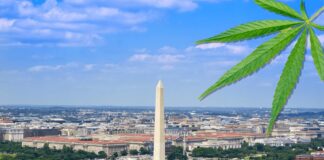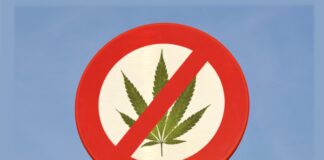
U.S. Surgeon General Jerome Adams said the federal government should rethink how it classifies drugs like marijuana Dec. 6, 2018, voicing concern that the plant’s current status as a strictly controlled Schedule I substance inhibits research.
Adams, who’s previously expressed interest in expanding research into the use of cannabinoids for therapeutic purposes, made the comment during a Q&A session at a Police Assisted Addiction Recovery Initiative conference in Massachusetts, the State House News Service reported.
“Just as we need to look at criminal justice laws, rules and regulations, we need to look at health laws, rules and regulations, and that includes the scheduling system,” he said.
“I’ll take it somewhere else: marijuana. We need to look at the way we schedule different medications across the board, because one of the concerns that I have with marijuana is the difficulty that the folks have to do research on it, because of the scheduling system.”
Marijuana is currently a Schedule I drug under the Controlled Substances Act (CSA), the most restrictive category. Many scientists and legalization advocates have complained that the classification requires investigators who wish to study cannabis to jump through extra hoops that don’t exist for for studies on other drugs.
That said, there’s growing bipartisan support in Congress to either reschedule cannabis or amend the CSA to create a separate registration process for marijuana research.
“Let’s hope the surgeon general takes a walk over to the Justice Department and tells the staff that Sessions left behind that they may now enter the 21st century, safely leaving behind the antiquated approach to drugs embodied by their dreadful ex-boss,” Michael Collins, director of national affairs for the Drug Policy Alliance, told Marijuana Moment in an email.
While Adams hasn’t thrown his support behind broader reform beyond research expansion — and shared doubts about the marijuana’s potential as an exit drug from opioids — he has backed science-based harm reduction policies, including syringe exchange programs designed to limit the spread of diseases such as HIV.
This article has been republished from Marijuana Moment under a content syndication agreement. Read the original article here.











